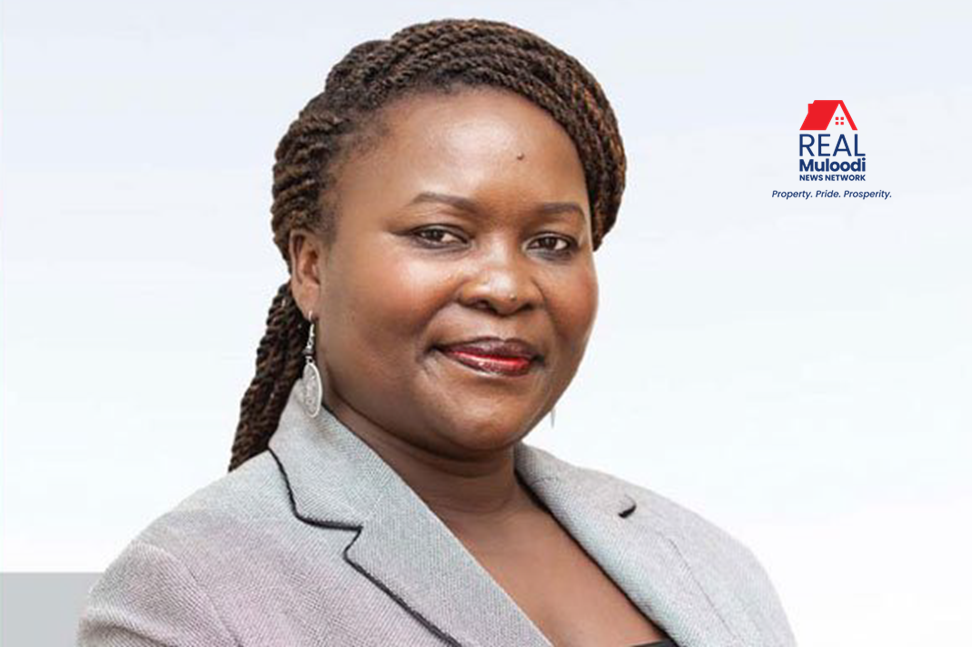UGANDA, Kampala | Real Muloodi News | In Uganda, ownership and possession of land is dominated by men. Women face numerous cultural and legal barriers that prevent them from fully enjoying their property and land ownership rights. Many women struggle to ever own property, while others struggle to hold onto property they have acquired, and others still are denied the right of succession.
Emilly Comfort Maractho, a senior lecturer of journalism and media Studies at Uganda Christian University, recently participated in a Consensus Study carried out by the Uganda National Academy of Sciences (UNAS).
UNAS launched its Consensus Study report, titled ‘Re-Imagining Being And Belonging In Uganda: An Enabling Framework to Foster our Sustained Development’ on Thursday, October 27. Emilly participated in the study as a member of the Committee on Equity and Inclusion.
Emilly says that the despite the national agenda already providing equality and equity measures, the best available evidence indicates that exclusion and inequality remain to be serious areas of concern in Uganda.
She says her participation in the study, looking at the data, and reading Kwame Appiah’s ‘the lies that bind’, opened her eyes to many systems of oppression, the lost voices and the politics of belonging.
Emilly narrates her own ordeal in dealing with exclusion and inequality in Uganda.
Recently, Emilly was notified by her property caretaker in the middle of October this year that the land in Mukono on which she is building her home had been encroached upon.
She was informed by the caretaker that her neighbours had built an access road and left her ‘house hanging’. She has been building this particular house, since 2015.
Emilly explains, “I did not imagine the expression, ‘my house hanging’ until I got to the site. I could have fainted seeing my house indeed ‘hanging’.”
The road was excavated so deep that the house stood like a troubled hill far away from below.
The encroachers said they had followed their boundary on the title, and saw nothing wrong.
The surveyors came and confirmed that indeed an additional piece of land Emilly had bought later had been resold to these people.
Emily says, “The seller transferred the land to them without ever involving me, created another access road sitting on my then piece of land, now theirs.”
She says, “the surveyor advised me to secure what is remaining of my land, the original piece with a title. My builder added that it was urgent to save my house too with a retainer wall that will cost many millions.”
The surveyor also told Emilly that a court case to reclaim her land would bring many years of frustration and that it would cost her equal to buying a plot elsewhere.
Emilly says, “I believed them and knew I had to give up because my mother and her sisters have been defending their right to occupy their home property for more than 50 years from a family who claim their grandfather had given a portion of it to my grandmother. The court case in Pakwach has dragged on for years. My mum and her siblings say this is what has come to kill them. We don’t know how to make this thing go away.”
Emilly’s next dilemma was where to find the millions to build a retainer wall around her property.
She decided to call the person she had lent money to, requesting a payback but unfortunately, she got more unpleasant surprises.
She narrates, “suddenly, I was abused and called names. I was so confused, shouted back a few incomprehensive things and switched off. I reflected on the circumstance under which the money had been borrowed and felt sad. I never imagined this scenario, refusal to pay and telling me to ‘get lost’ with such arrogance, it still makes me cringe.”
She thought to herself, “the person who owes me money, the guys who left my house hanging, and my mother’s neighbours, all have one thing in common, they know that there is nothing I or my mother and her sisters can do. My aunt was put in jail once for using their land. I still can’t believe that incident either.”
She recalls the times she sat in court giving her aunt moral support in Pakwach, and the many cases of injustice, which got her thinking if justice is attainable in Uganda.
She says, “from land dealers who manipulate the system at will, to dishonest individuals who know they will get away with anything because the judicial system is, for the most part, dysfunctional in rendering justice, one is left with one choice, to give up, as I was advised.”
Many give up on seeking justice even when they haven’t started doing a thing about the case.
Emilly reaffirms, “whenever the Chief Justice promises to improve things to enable access to justice, I wonder, does he know how bad things are? Does he know, the average Ugandan never tries to get justice because of the experiences of those who try and give up? We are disempowered before the law.”
There are multiple stories in each of these anecdotes that Emily narrated making the situation pitiful.
Following the Consensus Study Report on re-imagining being and belonging in Uganda: an enabling framework to foster our sustained development, Emilly could not help but concern herself about the injustices in land and property cases.
The study on being and belonging showed her that many people can reclaim some values while recognising the intersection of drivers of exclusion.
Social justice and protection are becoming the most critical issues if nothing changes.
She says everyone must cultivate some humane values to help them live with and respect one another.
READ MORE LIKE THIS:
Many Kabale District Women Unaware of Their Land Ownership Rights
The Struggle of Ugandan Widows: The Right to Inherit Property



